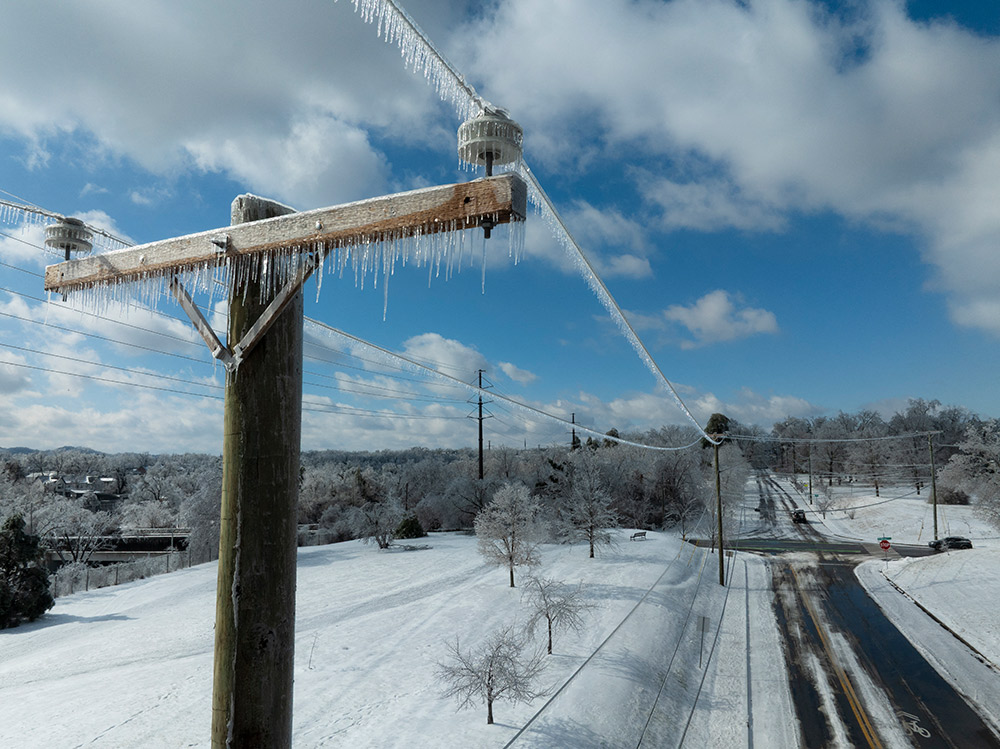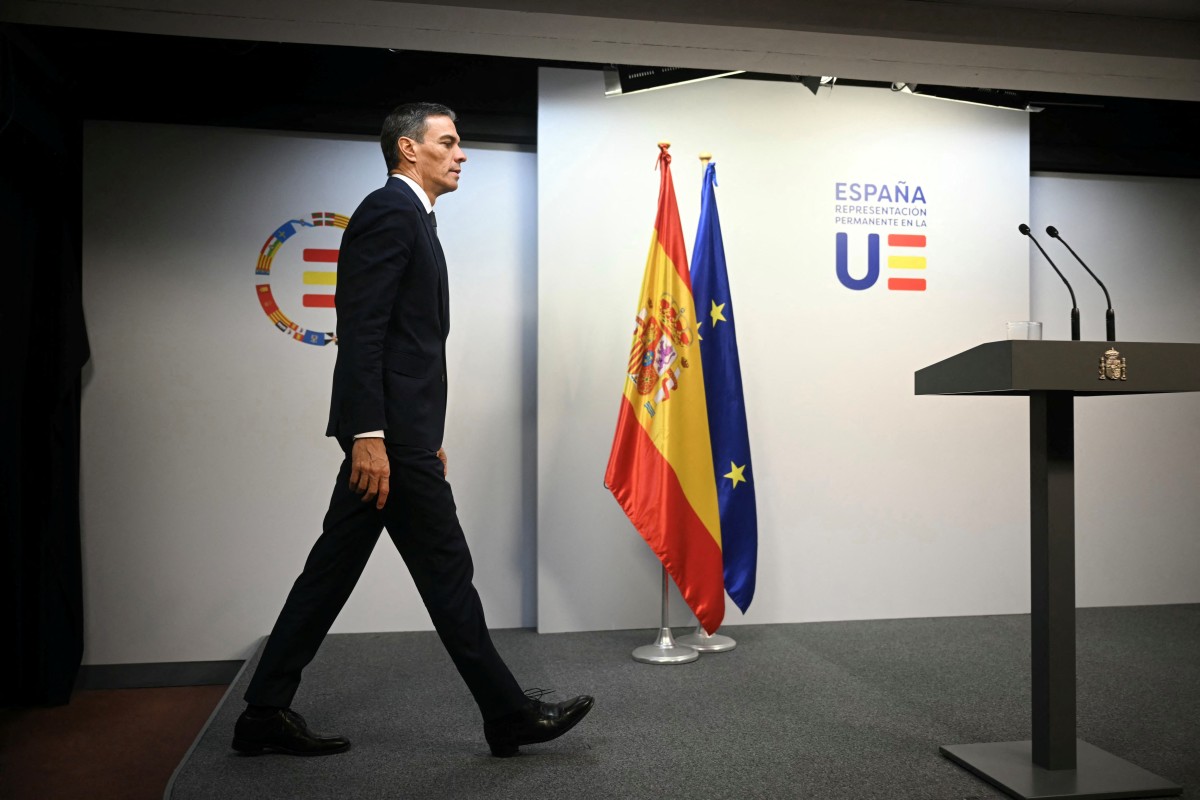International
Critics say new Cuba cybersecurity law limits freedom

AFP
Cuba published on Tuesday its first cybersecurity law, a move critics dismissed as a tool to limit political and civic freedoms on the Caribbean island.
The law, published in the official Gaceta newspaper, comes just over a month after unprecedented anti-government protests broke out all over the country.
The subsequent government crackdown left one dead, dozens injured and hundreds arrested. Havana blamed the unrest on foreign powers manipulating its citizens through social media.
The legislation laid out online activities that constitute a crime, such as cyberterrorism, cyberwar, calls for public disturbances as well as spreading information that is deemed to be false or hurts the image of the state.
“For the first time, the country will have a legal standard for cybersecurity incidents,” Pablo Dominguez, the cybersecurity director at the Communications Ministry, told the official Cubadebate news website.
Deputy Minister of Communications Wilfredo Gonzalez defended the law, telling AFP it would allow Cubans to “protect their personal data” and “their privacy,” and make sure that “no one is able to distort the truth, so that no one can denigrate an official of our country or our revolutionary process.”
Jose Miguel Vivanco, the Americas director at Human Rights Watch, said the law would enable internet providers to cut off access based on the government’s interpretation of fake news. “Cuba tightens the grip on the internet,” he said.
The news provoked an immediate reaction from Cubans on social media.
“We have the right to disagree and express it,” said user @SailydeAmarillo.
“Cuba is a dictatorship and is criminalizing freedom of expression,” tweeted Karly, a Cuban living in Costa Rica.
Mobile internet, which only arrived in Cuba in 2018, has quickly become crucial to citizen groups that want to express their frustrations and demands.
Last week, the government accused the United States of “aggression” after the US Senate adopted an amendment that would see Washington provide Cubans with internet access to help them circumvent Havana censorship.
“We are not going to allow that interference,” Gonzalez said of the new US policy.
Following the July 11 protests, the Cuban government cut internet access for five days after social media was used to spread the word about the historic demonstrations.
International
Winter Storm Fern Leaves 30 Dead and Over One Million Without Power Across the U.S.

The massive winter storm Fern, bringing polar temperatures, battered large portions of the United States for a third consecutive day on Monday, leaving at least 30 people dead, more than one million households without electricity, and thousands of flights grounded.
In the Great Lakes region, residents awoke to extreme cold, with temperatures dropping below -20°C. Forecasts indicate that conditions are expected to worsen in the coming days as an Arctic air mass moves south, particularly across the northern Great Plains and other central regions, where wind chills could plunge to -45°C, temperatures capable of causing frostbite within minutes.
Across the country, heavy snowfall exceeding 30 centimeters in roughly 20 states triggered widespread power outages. According to PowerOutage.com, nearly 800,000 customers remained without electricity on Monday morning, most of them in the southern United States.
In Tennessee, where ice brought down power lines, approximately 250,000 customers were still without power. Outages also affected more than 150,000 customers in Mississippi and over 100,000 in Louisiana, as utility crews struggled to restore service amid dangerous conditions.
International
Spain approves plan to regularize up to 500,000 migrants in Historic Shift

In November 2024, Spanish Prime Minister Pedro Sánchez announced a reform of the country’s immigration regulations aimed at regularizing 300,000 migrants per year over a three-year period, in an effort to counter population aging in a country where births have fallen by 25.6% since 2014, according to official data.
Going against the trend in much of Europe, Spain’s left-wing government has now approved an exceptional migrant regularization plan that could benefit up to 500,000 people, most of them from Latin America.
The measure will allow the regularization of around “half a million people” who have been living in Spain for at least five months, arrived before December 31, 2025, and have no criminal record, Migration Minister Elma Saiz explained on public television.
The plan, approved on Tuesday by the Council of Ministers, establishes that applications will be processed between April and June 30, enabling beneficiaries to work in any sector and anywhere in the country, Saiz said.
“Today is a historic day for our country. We are strengthening a migration model based on human rights, integration, and one that is compatible with economic growth and social cohesion,” the minister later stated at a press conference.
The socialist government of Pedro Sánchez stands out within the European Union for its migration policy, contrasting with the tightening of immigration measures across much of the bloc amid pressure from far-right movements.
Central America
Honduras swears in conservative president Asfura after disputed election

Conservative politician Nasry Asfura assumed the presidency of Honduras on Tuesday with an agenda closely aligned with the United States, a shift that could strain the country’s relationship with China as he seeks to confront the economic and security challenges facing the poorest and most violent nation in Central America.
Asfura’s rise to power, backed by U.S. President Donald Trump, marks the end of four years of left-wing rule and secures Trump another regional ally amid the advance of conservative governments in Chile, Bolivia, Peru, and Argentina.
The 67-year-old former mayor and construction businessman was sworn in during an austere ceremony at the National Congress, following a tightly contested election marred by opposition allegations of fraud and Trump’s threat to cut U.S. aid if his preferred candidate did not prevail.
Grateful for Washington’s support, Asfura—who is of Palestinian descent—traveled to the United States to meet with Secretary of State Marco Rubio, before visiting Israeli Prime Minister Benjamin Netanyahu.
“We need to strengthen relations with our most important trading partner,” Asfura said after being declared the winner of the November 30 election by a narrow margin, following a tense vote count that lasted just over three weeks.
-

 Central America2 days ago
Central America2 days agoGuatemala seizes over a ton of cocaine hidden in flour at Pacific port
-

 Central America4 days ago
Central America4 days agoGuatemala’s president rules out negotiations with inmates after prison riots
-

 International4 days ago
International4 days agoTrump-Era Defense Plan Prioritizes Border Security and Scales Back Global Commitments
-

 Internacionales4 days ago
Internacionales4 days agoMajor winter storm threatens “catastrophic” ice and snow across much of the U.S.
-

 International4 days ago
International4 days agoBogotá and Quito Seek Dialogue After Tariffs and Power Cut Escalate Tensions
-

 International3 days ago
International3 days agoDelcy Rodríguez seeks political agreements after Maduro’s ouster
-

 International4 days ago
International4 days agoGuatemala considers sending high-risk gang members to military prisons
-

 International2 days ago
International2 days agoHistoric snowstorm paralyzes Toronto after 60 centimeters of snow
-

 International2 days ago
International2 days agoSpain’s irregular migrant population rises to 840,000, study finds
-

 International3 days ago
International3 days agoFederal immigration agents kill man in Minneapolis, sparking protests and outrage
-

 Central America11 hours ago
Central America11 hours agoGuatemala Police Arrest Prison Guard Caught in the Act of Extortion
-

 International4 days ago
International4 days agoRights group says over 5,000 killed in Iran protests, mostly civilians
-

 International11 hours ago
International11 hours agoWinter Storm Fern Leaves 30 Dead and Over One Million Without Power Across the U.S.
-

 International2 days ago
International2 days agoRights group says nearly 6,000 killed in Iran protest crackdown
-

 International11 hours ago
International11 hours agoDoomsday clock moves to 85 seconds before midnight amid rising global risks
-

 Central America11 hours ago
Central America11 hours agoHonduras swears in conservative president Asfura after disputed election
-

 Sin categoría11 hours ago
Sin categoría11 hours agoEight Killed in Series of Armed Attacks in Ecuador’s Manabí Province
-

 International2 days ago
International2 days agoVenezuela frees at least 80 political prisoners, NGO says
-

 Central America11 hours ago
Central America11 hours agoBukele leads public trust rankings as UCA survey highlights gains in security
-

 International11 hours ago
International11 hours agoSpain approves plan to regularize up to 500,000 migrants in Historic Shift
-

 International2 days ago
International2 days agoEU launches new probe into X over AI-generated fake nude images
-

 Sin categoría11 hours ago
Sin categoría11 hours agoEl Salvador Launches Fourth Year of Ocean Mission to Protect Marine Ecosystems
-

 International2 days ago
International2 days agoSevere winter storm grips U.S., leaves multiple dead as extreme cold persists
-

 International2 days ago
International2 days agoFrance debates ban on social media for children under 15


























